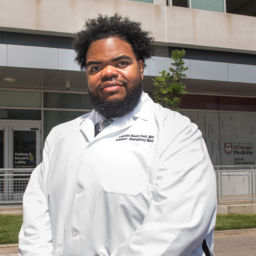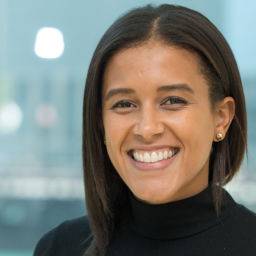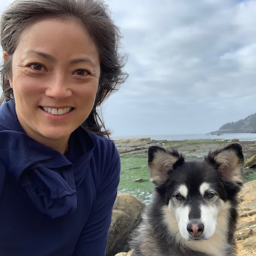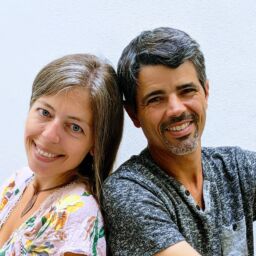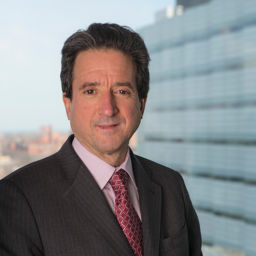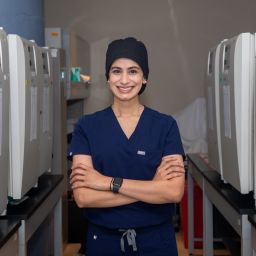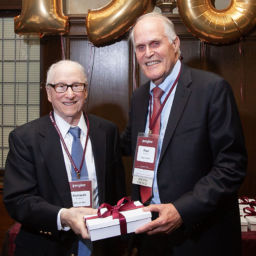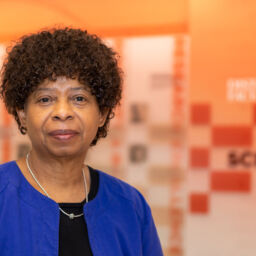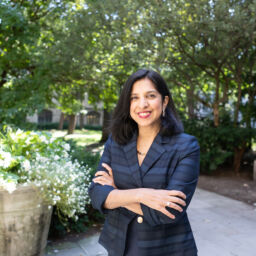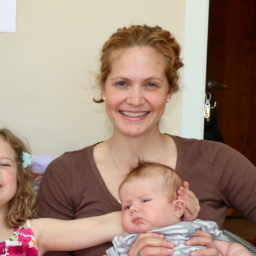On November 9, 2020, Halina Brukner, MD, dean for medical education at the Pritzker School of Medicine, moderated a virtual discussion about education and programming at Pritzker with Keme Carter, MD, associate dean for admissions; Jeanne Farnan, AB’98, MD’02, associate dean for evaluation and continuous quality improvement; Vineet Arora, AM’03, MD, assistant dean of Scholarship & Discovery; and Monica Vela, MD’93, associate dean for multicultural affairs.
The conversation began with Dr. Carter who provided an overview of Pritzker’s admissions program and shared background on the newest Pritzker class, which Dr. Brukner described as “astoundingly accomplished” and one of the most diverse compared to peer institutions with 28 percent identifying as underrepresented in medicine. Dr. Carter explained how the work of the admissions team is influenced by Pritzker’s mission to inspire diverse students of exceptional promise and is therefore focused on recruiting students from diverse backgrounds who are academically excellent, well-rounded, and dedicated to service.
Dr. Farnan spoke about planning for the future of medical education and training students to be tomorrow’s leaders in the field. She also offered a unique perspective on how Pritzker’s curriculum and the field of medical education has changed since she was a medical student in 2002, including the rapid evolution of instruction during the COVID-19 pandemic, the changing focus on bias in assessment, and the role of technology in areas such as simulation based education.
Dr. Arora discussed Pritzker’s fundamental commitment to training leaders who contribute to building new knowledge across a variety of interests, such as healthcare delivery science and community health. She explained how Pritzker’s Scholarship & Discovery program is broad-reaching, trains medical students to be problem-solvers, and continues UChicago’s tradition of being the “teacher of teachers.” Dr. Arora also shared examples of the types of research projects Pritzker students are conducting and their impact, such as a project led by fourth-year student Nicole Smith looking at the health effects of chronic hypervigilance among urban residents—research published in the leading health policy journal Health Affairs.
Dr. Vela described how Pritzker builds and maintains an inclusive community and how diversity has increased dramatically at Pritzker since 2012. She discussed the healthcare disparities course, a program that she created which is now a fundamental course for first-year Pritzker students and is one of the few freestanding courses on equity and advocacy across the country. “In fact, it is the only course that has been shown to impact recruitment in terms of diversity and the only course that has been demonstrated to impact climate in terms of inclusivity,” Dr. Vela said. Dr. Vela also shared information about the Pritzker Pathway Programs.
The program concluded with Dr. Brukner discussing the challenges Pritzker faces, including the rising cost of medical education, maintaining consistent renewal of scholarship support that minimizes student debt and is competitive with peer institutions, and keeping facilities and technologies up-to-date. Philanthropic support from our alumni plays an important role in keeping Pritzker at the forefront and helps recruit the most talented students.
If you would like to support the students, faculty, and programming of the Pritzker School of Medicine, please make a gift online via our secure site or call 1.888.UCHICAGO (1.888.824.4224).


